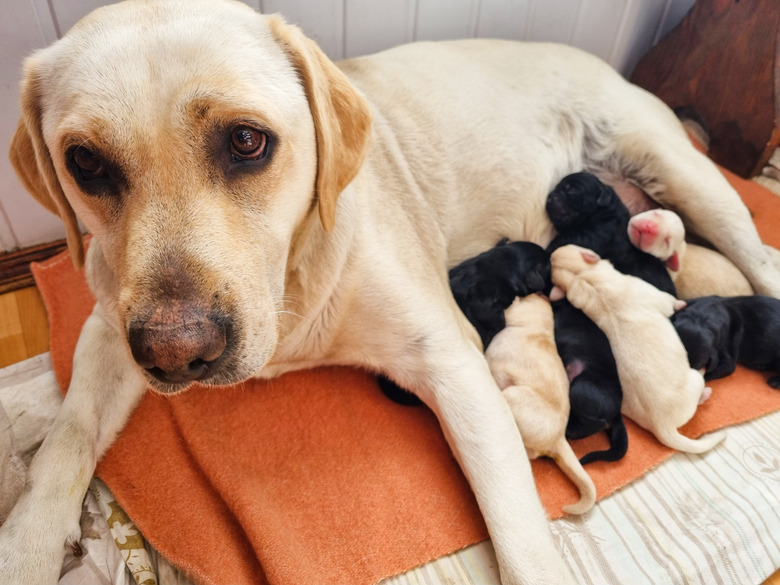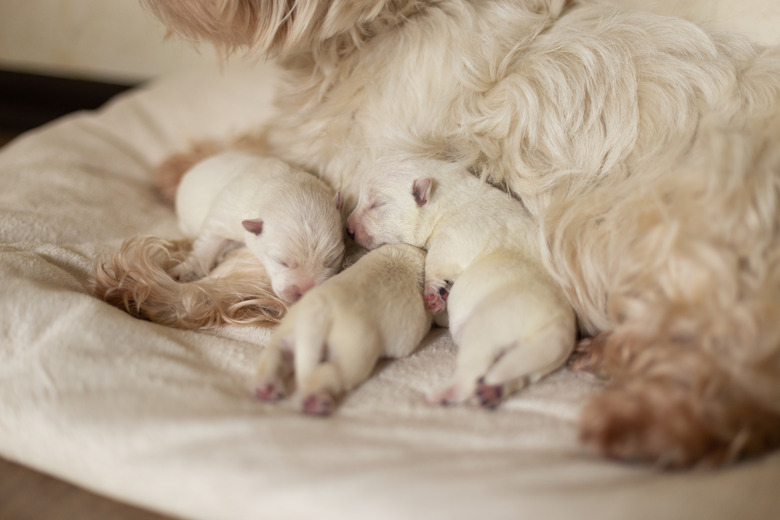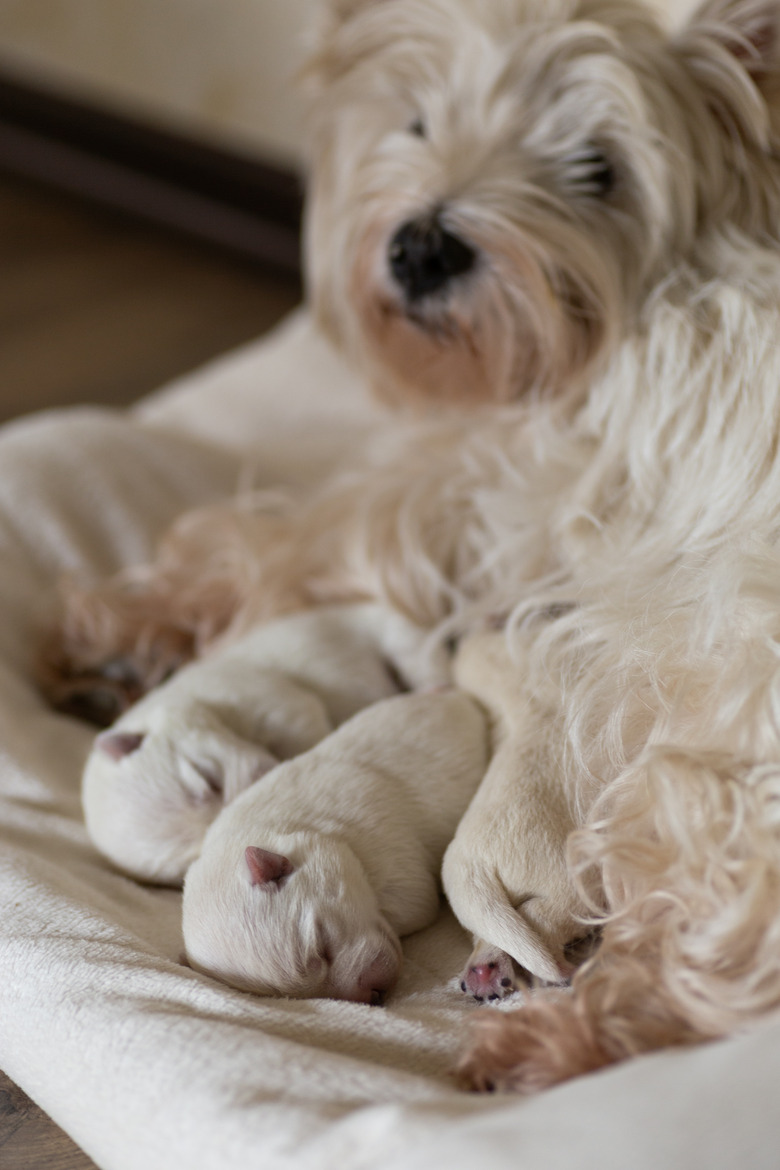Signs & Symptoms Of Postpartum Depression In Female Dogs
You probably already understand what postpartum depression is. You may have even experienced it yourself, or seen one of your family members or friends go through it. But it might surprise you to learn that dogs can get post puppy depression, and in fact the signs and effects of dog postpartum depression are similar to in humans. Postpartum in dogs can set in quickly after the puppies are born, or it can take several weeks to develop.
Do dogs get postpartum depression?
Do dogs get postpartum depression?
According to the CDC, postpartum depression affects around 1 in 8 women in the United States, with symptoms that might include deep sadness, lack of energy, irritability, and other negative emotions. While dogs can't tell us if they're feeling these emotions, their behavior often can.
If your pet has dog postpartum depression, she may exhibit signs of sadness and lethargy. She will probably lose interest in her puppies, and she may even refuse to nurse them. In some cases, female dogs suffering from depression will also become aggressive towards their puppies.
Loss of appetite
Loss of appetite
A loss of appetite is a common sign of dog postpartum depression. Your dog may show less interest in food and water, and may not even respond to the most tempting of treats. It's important to note that a lack of appetite doesn't automatically mean your dog has postpartum depression. There are many possible causes to a dog suddenly losing interest in eating, so you should take her for a thorough exam at your veterinarian's first to rule anything else out.
You can help your dog by encouraging her to eat and help her care for her pups. She needs to eat so she can make milk for her nursing pups, but it's common for a female dog post-pregnancy to feel weak and tired–nursing can be very tough on her body! If she continues to refuse food, try syringe feeding her pet food supplements.
Lack of interest in her puppies
Lack of interest in her puppies
A female dog with postpartum depression may also show a lack of interest in her puppies. She might avoid grooming them and push them away when they try to nurse from her. It's very important that she nurses her puppies, so if she isn't doing this, you may need to step in. Your veterinarian will be able to advise you on the best method of feeding the puppies, usually using supplemental milk to feed them through a syringe or bottle.
Excessive tiredness and sleeping
Excessive tiredness and sleeping
It's natural for female dogs to sleep a lot after having puppies, but if your dog is sleeping excessively, she might be suffering from postpartum depression. This might last for a few days or weeks depending on the severity of her condition. All dogs are different, and some dogs are able to recover quickly from the hormone surges that come after pregnancy. For others, it can be a longer struggle.
How to help a dog with postpartum depression
How to help a dog with postpartum depression
It's normal for a female dog post-pregnancy to seem different to the dog you knew before she had her puppies. She's just been through an exhausting and life-changing event, after all! But you should see that initial tiredness and changes to her behavior improve over the course of the first few days.
The best thing for you to do to support your dog through this is to keep providing your usual love and care, maybe even a little bit more. Affection, exercise, and playtime (as much as she can manage with a new litter of puppies) are all great ways of boosting your dog's mood.
If she continues to show signs of dog postpartum depression, you should talk to your veterinarian about other ways to help her cope. It may be that depression medication could help her get past her post puppy depression.


